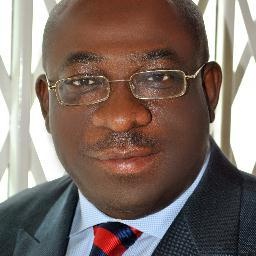Mr Edward Atto Sarpong, Deputy Minister of Communication, on Thursday said issuance of frequency modulation to individuals and institutions should be based on merits instead of influence or contacts.
He said: “As a country, we are not fair with ourselves since 1992 to date when we liberalised our airwaves for independent broadcasting because licensing was based on whom you know rather than whether the individual or organisation really merits the offer”.
Mr Sarpong was speaking at the ongoing national conference on Broadcasting Pluralism; Press Freedom and Democratic Governance in Ghana, being organised by the Ghana Institute of Public Policy (GIPPO) with sponsorship from STAR-Ghana to review developments in the country’s media over the last 20 years.
Media experts, industry operators, regulators, cross section of user groups and representatives of the public from across the country are attending the three-day conference under the theme: “Twenty Years after Independent Radio EYE: The Way Forward”.
Mr Sarpong said it was about time “we all agree that as the way forward, we must give out license for radio frequency on merits as the first measure of cleaning the system”.
On the Broadcasting Bill, he said it had been brought to the Ministry following the amalgamation of the two ministries and they were reviewing it.
The Deputy Minister said after going through the document there was the need to have another stakeholders’ forum early 2015 to hammer on certain grey areas in the document before laying it before Parliament in the middle of the year.
He said over the years, there had been challenges in the regulatory regime of broadcasting in Ghana, especially how to regulate the local content in both television, radio and recently online.
Mr Sarpong, therefore, stressed the need to have national discourse on that as well as balancing the freedom and responsibility of the media and who had the capacity to enforce the standards.
He said there was the need to put in an effective Broadcasting Law before crossing over to the digital regime to make the media more competitive.
Mr Albert Kan-Dapaah, former Minister of Communication under the New Patriotic Party Government, said broadcasting was the most practical means for the ordinary person to participate in the democratic process of every nation.
He said the liberalisation of the airwaves had brought some level of awareness on accountability as citizens were becoming more conscious about issues bordering on democratic governance.
“You cannot give governments so much power, so much money without pressing for accountability,” he said.
He said the proposed Broadcasting Law should be able to address inconsistencies hampering broadcasting regulations and also harmonise the mandate of the two bodies, namely National Media Commission and National Communication Authority for effective cohesion of the media landscape.
Mr Kan-Dapaah urged the Government to resource the National Media Commission adequately to enable it to carry out its mandate effectively and efficiently.
Mr Akoto Ampaw, Lawyer and a member of the National Media Commission, also stressed the need for a review and amendment of all broadcast related laws to ensure their harmonisation and optimum impact on broadcasting and the lives of the people.
“We need to review all the outstanding aspects of the Bill without delay and have it tabled before Parliament and passed into law definitely before the end of 2015 so that, among other things, we would be assured of sane and healthy broadcast regulatory framework before the 2016 election campaign begins in earnest and before the elections themselves,” he said.
Regional News of Friday, 21 November 2014
Source: GNA
‘Frequency modulation issuance must be based on merit’

















